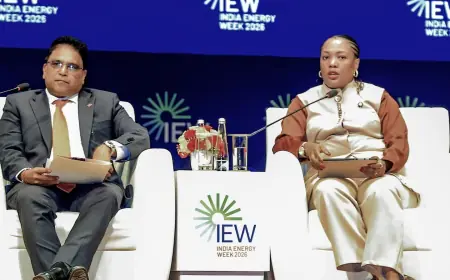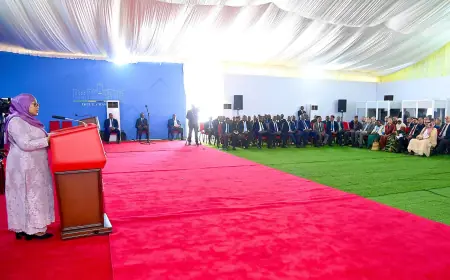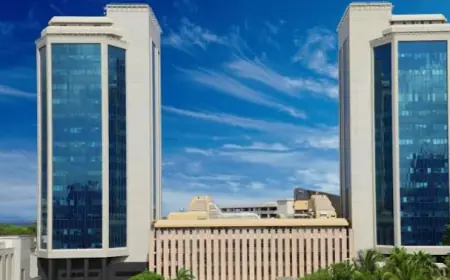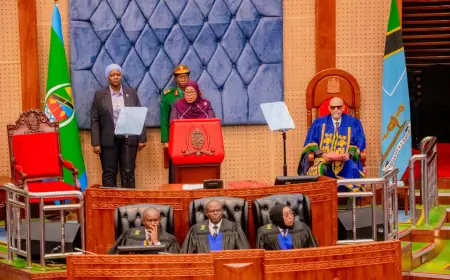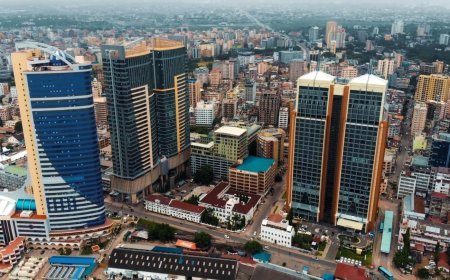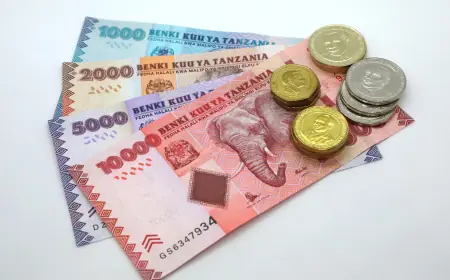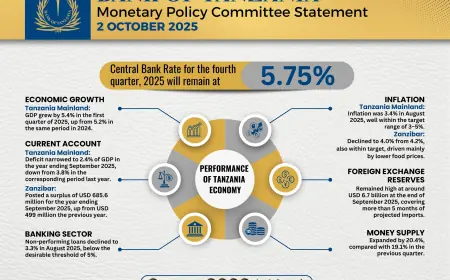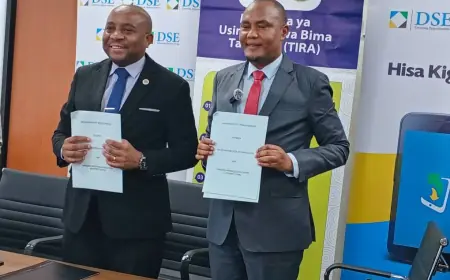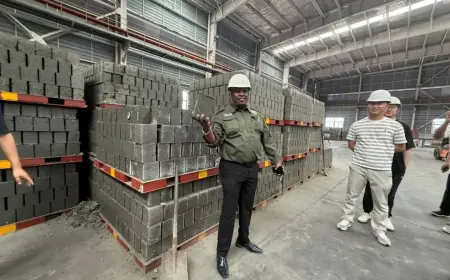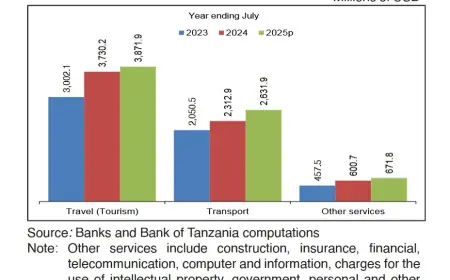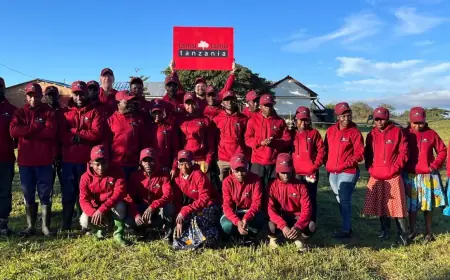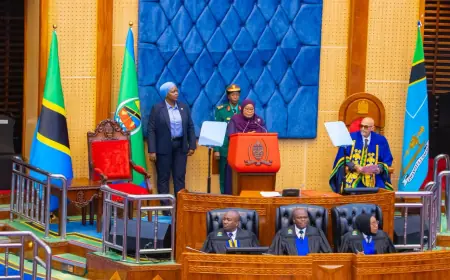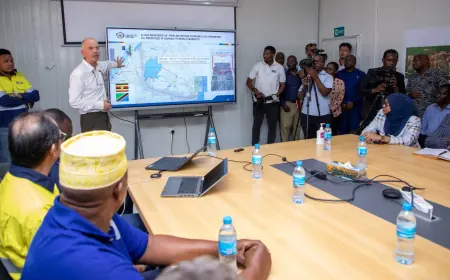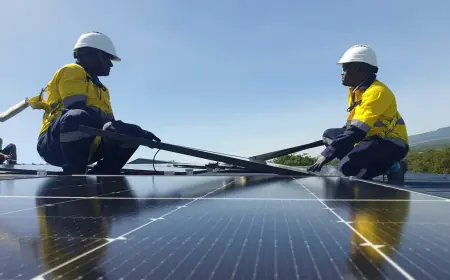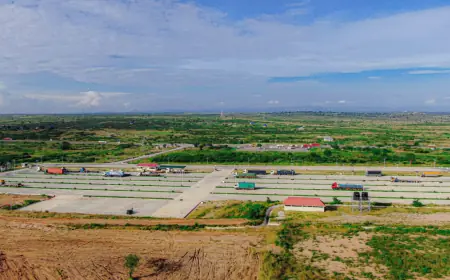Why State-Owned-Enterprises offer investment opportunities for equity funds, private investors
With the government pledging to limit bailouts and instead promote capital-market access, investors looking for opportunities in stable, long-term assets are now being encouraged to consider Tanzania’s restructured SOE sector

Dar es Salaam. The government’s renewed drive to steer State-Owned Enterprises (SOEs) towards financial self-reliance is opening a new frontier for private equity funds, institutional investors, and both local and foreign private investors to diversify their portfolios beyond traditional private sector options.
Speaking during the annual Dividend Day held on June 10, 2025, President Samia Suluhu Hassan made a strong case for SOEs to wean themselves off government support by leveraging their assets and performance to attract capital directly from domestic and international financial markets.
This marks a significant policy shift with implications for Tanzania’s broader investment landscape.
“We must begin to see SOEs operate as commercial entities capable of raising funds based on their audited financials,” President Hassan said, as she called for a change in mindset across public institutions.
She emphasised that Treasury guarantees should no longer be the default path to securing loans.
The policy stance, backed by fiscal reforms and performance-based oversight, is expected to reposition public enterprises as credible investment vehicles.
With the government pledging to limit bailouts and instead promote capital-market access, investors looking for opportunities in stable, long-term assets are now being encouraged to consider Tanzania’s restructured SOE sector.
The dividend handover this year amounted to a record-breaking TSh 1.028 trillion—collected from SOEs and firms with minority government shareholding—up by 68 percent from the same period last year.
Coordinated by the Office of the Treasury Registrar (OTR), the collection is expected to increase further by the end of the financial year on 30th June 2025.
This performance reflects improved compliance and operational efficiency across institutions.
It also signals the beginning of a more mature relationship between government and public enterprises, one rooted in returns, accountability, and competitiveness.
According to the Bank of Tanzania’s Monthly Economic Review for May 2025, the outstanding domestic debt of selected SOEs rose slightly to Sh84 billion in April 2025, while external debt stood at $3.8 million.
The figures underscore the need for SOEs to explore alternative capital sources—an area where private investors could now play a meaningful role.
Tanzania’s public sector, through the OTR, supervises 253 Public Sector Corporations (PSCs). Of these, 218 offer public services, while 35 are engaged in commercial activities, ranging from finance and transport to extractives and telecoms.
Furthermore, the government holds minority shares in 56 companies—a strategic foothold that allows it to influence key sectors without full ownership.
This institutional architecture is creating new openings for investment firms seeking to broaden their footprint in emerging markets.
With many SOEs operating in sectors where demand is strong or supply is limited, such as energy, infrastructure, logistics, and digital services, the risk-return profile is shifting positively.
For investors, these are critical sectors with long-term revenue potential and national development relevance.
Globally, the trend is clear. A 2015 study by PwC shows that SOEs constituted 23 percent of Fortune Global 500 companies in 2014, up from 9 percent in 2005, with Chinese firms dominating the top ranks.
The International Monetary Fund (IMF) estimates that 20 percent of the world’s 2,000 largest companies are state-owned.
While some remain loss-making and fiscally risky, those in monopolistic or high-demand sectors have proven profitable.
In East Asia, SOEs played a central role in economic transformation, particularly in countries like Vietnam, South Korea, and China, where strategic oversight combined with market responsiveness produced rapid industrial growth.
Tanzania now appears to be drawing from that experience as it repositions its own public enterprises.
President Hassan’s directive that institutions resolve internal inefficiencies and embrace innovation is part of a broader effort to reshape the public sector’s culture.
By encouraging SOEs to raise capital independently, the government is not only reducing fiscal pressure but also sending a strong signal to markets: Tanzania is open for business, including in sectors traditionally dominated by the state.
As the government seeks to increase non-tax revenues from public institutions to at least Sh1.5 trillion next year, opportunities abound for capital market stakeholders to tap into this transition.
The shift also presents prospects for private equity funds, pension funds, and investment banks to partner with or finance SOEs through equity investments, bond issuances, or public-private partnerships.
With SOEs showing signs of institutional reform and stronger financial discipline, analysts expect increased investor confidence.
If successfully executed, the strategy could unlock billions in dormant capital, improve service delivery, and anchor sustainable development.
For investors looking to diversify into a largely untapped segment with government backing, Tanzania’s evolving SOE framework could become one of the region’s most attractive propositions.
What's Your Reaction?
 Like
1
Like
1
 Dislike
0
Dislike
0
 Love
0
Love
0
 Funny
0
Funny
0
 Angry
0
Angry
0
 Sad
0
Sad
0
 Wow
0
Wow
0
